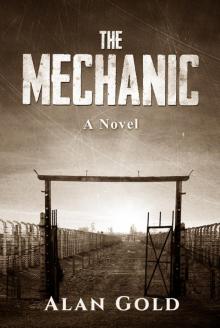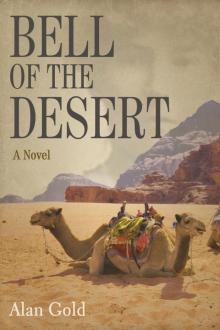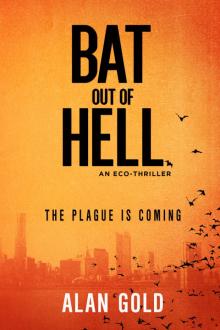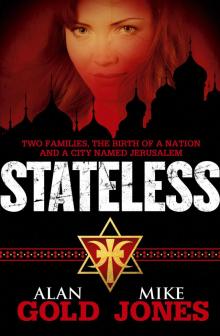Bloodline Read online
Thank you for downloading this Atria Books eBook.
* * *
Join our mailing list and get updates on new releases, deals, bonus content and other great books from Atria Books and Simon & Schuster.
CLICK HERE TO SIGN UP
or visit us online to sign up at
eBookNews.SimonandSchuster.com
* * *
Go beyond the pages of Bloodline and unlock hidden secrets by tapping or scanning the QR codes throughout this book.
* * *
Absolute faith corrupts as absolutely as absolute power.
The opposite of the religious fanatic isn’t the fanatical atheist, but the gentle cynic who doesn’t care whether or not there is a god.
—ERIC HOFFER, MORAL PHILOSOPHER
A TIMELINE OF THE EVENTS IN JERUSALEM
1000–970 BCE: King David rules over a united Israel.
970–931 BCE: King Solomon rules. During this time the First Temple is built in Jerusalem.
922 BCE: Under the rule of Solomon’s son, King Rehoboam, ten northern tribes of Israel secede from the two southern tribes of Judah and Benjamin.
722 BCE: King Sargon II of Assyria conquers the northern kingdom and exiles inhabitants.
586 BCE: King Nebuchadnezzar II of Babylonia conquers the southern kingdom of Judah, destroys Solomon’s Temple, and exiles thousands of Jews to Babylon.
538 BCE: King Cyrus of Persia conquers the Babylonian empire and allows Jews to go back to Israel.
516 BCE: The Second Temple is built on the site of Solomon’s Temple in Jerusalem.
332 BCE: Alexander the Great conquers the Persian Empire. Israel is now under Greek domination; early synagogues spread throughout the Greek world.
167 BCE: The Maccabees, the Jewish rebel army, rise up against the Syrian Greek overlords to rid the Second Temple of idols.
73–4 BCE: The life of King Herod the Great. During his reign, he invites the Roman Empire to make Israel a client nation and rebuilds the Second Temple to be one of the major structures of the ancient world.
6 CE: Because of unrest in Israel, Rome annexes Judea.
66 CE: The beginning of the first great Jewish revolt against Rome, put down by General (later Emperor) Vespasian and his son, Titus.
70 CE: The Romans destroy Jerusalem and the Second Temple.
132–135 CE: The Jewish leader Simon bar Kokhba leads a second Jewish revolt. Emperor Hadrian crushes the rebellion. Jews are expelled from Jerusalem, but many remain in the rest of the land.
American National Broadcast Network
OPINION
Iran Holocaust Conference: Global Jewish Community Outrage
“Affront to Memory of Martyrs” says US President
NOTE: Opinion columns do not reflect the opinions of ANBN.
From ANBN Correspondent Ivan Grossman
0950 Atlantic Standard Time, Thursday, December 14, 2006
TEHRAN, IRAN – (Transcription from filed report)
Even by the Messianic standards of the ultra-religious Hassidic Jewish sect, Neturei Karta, this was a step into the unknown. In the past they’d formed strange bedfellows with anti-Semitic protesters at the UN Conference in Durban, South Africa; protested against Ehud Olmert’s visit to the White House; and denied Israel’s right to exist. Yet being honored guests of the Iranian president, Mahmoud Ahmadinejad, displayed an unprecedented step for the radical Jewish group.
Ahmadinejad had invited representatives of Neturei Karta, along with Ku Klux Klan leaders, white supremacists and anti-Semitic revisionist historians, to examine whether the Holocaust – perhaps the most documented and researched event in history – had actually happened.
Gathered in Tehran over the past two days, these 67 marginalized and peripheral representatives from 30 countries earnestly asked each other whether the Holocaust, which killed six million Jews, along with countless Slavs, Communists, handicapped and the mentally ill, had actually taken place.
To prove their case, discussion explored the half-life of Zyklon B, the poisonous chemical used in the Nazi gas chambers; the fact that no chimneys had been found, hence no gas chambers; and proposed that the concentration camps had been respite places for overcrowded Jews from the ghettos.
Holocaust denial conferences have been organized for many years by discredited historians, and anti-Semites masquerading as bona fide researchers, but the presence of ultra-Orthodox rabbis from Israel, the United Kingdom and the United States shaking hands with Ahmadinejad represented a new and quite bizarre level.
The leader of Neturei Karta from Jerusalem, Rabbi Shmuel Telushkin, told the conference on its opening day, “The Orthodox Jewish community views the Holocaust as significant, but it was a punishment from God for the creation of Zionism, the political philosophy to create Israel before the arrival of the Messiah; it is God’s punishment for the arrogance and secularism of the Jews who have wandered off the path of Orthodoxy and Judaism, and who fail to put into practice the dictates of the Torah. Yet these very same Jews are using the Holocaust to legitimize the criminality and actions of Zionism.”
Rabbi Telushkin’s remarks were greeted with loud applause.
President Ahmadinejad has been a major accuser of Israel in its treatment of the Palestinians, and his policy positions have been given strange new legitimacy by the appearance beside him of the Neturei Karta. The front pages of Tehran’s newspapers have been quick to carry the pictures of the rabbis standing side by side with the Iranian leader. In his state-controlled media, Ahmadinejad calls the Holocaust a myth created by Zionists as a propaganda tool to raise money and dominate the Middle East. He speaks of a glorious future for Arabia and Iran in which Israel ceases to exist. The implications for Iran’s estimated 20,000 Jews, whose lives are already fraught, are unknown.
Hard as it is for the outside world – and a vast majority of Jews – to understand the rationale of Neturei Karta wanting the destruction of Israel, the sect believes that it is a sin before God for the secular Zionists to have created a Jewish state. The Torah says that God will create the state and Jews will live in exile by divine decree until the circumstances are right for the Messiah to return. And those circumstances? Upheaval, wars between nations, genocide and what they dub “the end times.” The creation of Israel, they believe, has caused massive pain for Jews, and so the Holocaust itself was God’s displeasure with the Zionists.
Shmuel Telushkin wore a Palestinian flag in his lapel and believes that his presence was intended to shake the Jewish community out of its complacency.
Ivan Grossman in Tehran, reporting for ANBN, the American National Broadcast Network
PART ONE
October 16, 2007
SLITTING THE MAN’S THROAT wasn’t the problem. Bilal waited, watching the Jew enemy shift position in his chair, and fought to overcome his rising panic by remembering the lessons he’d been taught. One hand over the man’s mouth to stop him screaming as the knife in the other hand sliced through the soft tissue of the throat and all the blood vessels. Keep the hand tightly over his mouth for at least a minute for the lifeblood to drain away. He’d practiced the movement in his bedroom until he was fluid as a dancer.
Bilal crouched and held his breath as the Jew, remembering his duty, stood, scratched himself, walked around his position glancing left and right, up and down, made certain that everything was in order, and then sat again. Bilal saw the man looking directly upward to the white walls of the ancient city of Jerusalem and the golden mosque beyond—but what was he thinking? And did it matter?
The panorama in front of Bilal made his heart beat in excitement. The massive walls of the Old City that surrounded the Temple of Solomon gleamed white in the glow of the arc lights. The moon was a thin crescent over the distant mountain ridge. In his ris
ing panic, he tried to calm himself by remembering what his imam had taught him. That the great sultan Suleiman the Magnificent had built those walls and Bilal even remembered the date: about 1538. It was impossibly long ago. Bilal couldn’t even understand how long. But it all seemed so grand and old.
Above the walls was the gray-blue dome of the third holiest site in Islam, the al-Aqsa Mosque. And beyond that, the gleaming golden cupola of the Masjid Qubbat As-Sakhrah, the Dome of the Rock, both mosques the symbol of Islam’s ancient claim to the city of Jerusalem. Bilal found himself imagining pictures from the stories he’d been told since a child, of Mohammed tethering his wondrous horse al-Buraq, with its head of a woman, wings of an eagle, tail of a peacock, and hoofs reaching to the horizon, before ascending on his journey to heaven.
“Peace and blessings be upon him,” Bilal murmured under his breath as a reverential reflex to using Mohammed’s name. But Bilal’s mission wasn’t to pray. He prayed every Friday in his own mosque and lately, urged on by his imam so that he could familiarize himself with the terrain, he prayed in the al-Aqsa. No, today his mission was to begin taking back Jerusalem; to take revenge on the Jews who had dispossessed his family, destroyed his homeland, made his people into paupers, imprisoned his brother as a terrorist, and cast him as a refugee.
Jerusalem’s night air was cold, but he felt comfort and warmth when he remembered being in the mosque of Bayt al Gizah, his village just across the valley, sitting at the feet of the imam a month ago, along with twenty other young men from his village. The imam sat cross-legged on a cushion, surrounded by Bilal and his friends on the carpet. His imam was smiling and talking with such ease and confidence about the splendors they would each experience in the afterlife; but then his face and voice became severe as he spoke of the way in which their people, the Palestinian people, were daily abused and murdered, tortured and brutalized, by the Jews. He asked each youth on his way home that night to glance over the valley toward the city of Jerusalem; to look at the glory of the mosques, one gold and the other silver, their subtlety and quiet beauty, and then to look at the gaudy, tawdry, and immoral modern city the infidels had built. One day it would be gone.
When they were leaving the mosque, the imam asked Bilal to wait. At first he thought the imam had made a mistake, confusing him with one of the older boys whom Bilal so looked up to. But from the moment he spoke, Bilal knew that his words were for him, and him alone. Barely able to breathe, the young man wondered why the imam had held him back. Was it because of the way he worshipped? Was it to ask him to do a job? Was it to say something now that he was approaching his eighteenth birthday? It was none of these.
“Allah has chosen you for a special purpose, Bilal.”
The boy made no response but his heart thudded in his chest. Of all the prospects of hope and excitement that the sentence suggested, it was the sound of his own name from the imam’s lips that filled him with the greatest pride and settled any doubt that his holy teacher spoke only to him. His shoes were worn near through, his family wasn’t rich, and he’d long since stopped going to school. But there, staring up at the imam, he felt for a moment like a prince.
“You will be among the blessed. You, Bilal, will be a hero to our people, the pride of your mother and father. You will strike a blow from which the enemy will never recover. And I will ensure that your name is inscribed in the holiest of holy books and kept in pride of place in Mecca.”
“Me? My name?” Bilal could barely speak.
The imam smiled and put his hand on the young man’s shoulder. “You, my son. Though I’ve only been your leader for a year, I have grown to love you and the other young men who have flocked to sit at my feet and listen to the words of Mohammed, peace and blessings be upon him. And in these past months, you, as well as a number of others, have impressed me, Bilal. You will lead the fight of our people against the Zionist enemy. Soon, I will inform you of a mission I wish you to undertake.”
Close to tears of pride, Bilal whispered, “I won’t let you down, Master. This I swear.”
And during the month, the imam and the mosque’s bomb maker had worked hard to ensure that Bilal’s mission would be successful. His training done, his prayers said, his will written, his face and voice recorded for all the world to admire on the Internet, Bilal stood in the shadow of the wall with the imam’s words still fresh in his ears. He smiled to himself as he waited and watched the Israeli guard shift his position protecting the entrance that led into the tunnel. He ached to strike a blow for the freedom of his oppressed people, to reclaim his land from the Jews. He lived a degraded life in a crowded village while just over the valley the Jews lived in luxury houses and had maids and manservants and wore gold jewelry and drove expensive foreign cars around a city that should have been his.
Bilal was a Palestinian but his culture told him he was born a refugee because of the 1948 war, and the war of 1967, and the war of 1972, and the other wars waged by fearless Arab armies to push the Jews back into the sea. Each war, each attempt to eliminate the Jewish presence from Palestine, had ended in failure and misery; but the Jews were few, and the Arabs were many and they could wait for a hundred, even a thousand years to win, but win they surely would, according to his imam.
And so Bilal waited patiently for the right time to kill the Jew. He hated waiting, but his imam had told him that patience and judging the moment were more important to his mission than rashly moving forward and exposing himself to the enemy.
The Jew guard seemed to relax; he moved his head in a circular direction as though massaging his neck muscles, put down his rifle from his shoulder to his lap, and reached down to a thermos; he poured himself a drink and Bilal saw the steam coming out of the cup. As the man lifted it to drink the coffee, Bilal slipped his knife from its scabbard, ran forward silently to cover the twenty meters between himself and the Jew enemy, and, before the man even knew that his life was in peril, put a hand over his mouth, pulled his head back, and sliced his throat in a gash of crimson from ear to ear.
Bilal kept his hand over the man’s mouth so that he couldn’t scream and embraced his body firmly against his own to prevent him from struggling. Even though the guard was seated, Bilal could barely constrain the tough body flailing against imminent death. He felt it through the shirt. It was a hard body, a strong body. Not a bodybuilder’s physique with constructed muscles only good for posturing and lifting weights; no, this was the taut body of a man who’d done physical work all his life. Compact, tight, beautiful.
He put his face close to the Jew’s, smelling his sweat and fear and blood. And in the moonlight, Bilal saw that he wasn’t a Westerner but a Yemenite, a Moroccan or maybe even a black Ethiopian Jew—certainly a Jew with Arab blood, but difficult to tell without the daylight sun. Bilal felt a moment of empathy with the man. Killing an Arab Jew was different from killing one from Germany or Russia or America. As he held the man’s increasingly limp body, he worried that he’d killed one of his own; but the man wore an Israeli Border Police uniform, and that made him the enemy, no matter where he’d been born.
With his hand still over the man’s mouth, Bilal held him closely until he felt no more struggling. Just a body slumped in his chair, the stench of urine, coffee, blood mingling in the cold night air, making Bilal want to gag.
* * *
YES, SLITTING THE ENEMY’S THROAT was easy. As was concealing his body. He just pulled the dead Jew out of the seat and dragged him inside the fence where the excavations were being conducted to reveal the City of David at the base of the wall that encircled the Old City of Jerusalem.
And weaving his way through the digs, it was easy to ascend from deep in the valley at the base of the City of David, up the newly discovered tunnel, and out of sight into the Old City, where he’d create mayhem, headlines that would be read around the world.
Bilal stood at the base of the tunnel and switched on his flashlight. He remembered the feeling two days earlier when he pretended to be nothing more than a t
ourist, joining lines of people walking up through the tunnel. He was there to memorize the way, to plan every footstep, for when he came again to complete his mission, it would be dark.
On that day, the first time he’d been in the tunnel, he stood at the back of a group of American evangelical Christians, some black, some white, waiting for them to finish praying. Their leader, a tall, white-haired black preacher, was holding up the other tourists, but the man of the Christian god didn’t care. He raised his arms and shouted to his congregation, “Brothers and sisters, let us ascend to the Temple of Solomon as the ancient Israelites did three thousand years ago, and raise our voices in praise of the Almighty . . .”
Every evangelist shouted, “Praise the Lord . . . Hallelujah . . . Praise be to God.”
“Praise the Lord who has brought us to the Holy Land and enabled us to walk in the footsteps of our very Lord Jesus Christ himself, who came from the line of King David, who built this very tunnel three thousand years ago, my brothers and sisters . . .”
“Praise the Lord!” they all shouted as the guide for the City of David tried to round them up and usher them all into the tunnel.
Bilal hung around the group, and when the last few were walking toward the tunnel, he attached himself to the rear, trying to hide himself in the crowd, avoiding the eyes of the guards and police and soldiers. And as they walked up the slope, which once was a waterway from the top of the city down to the Pool of Siloam, they began to sing “Onward, Christian Soldiers” at the tops of their voices as they slid and stumbled on the slippery floor and clung to the handrails in the dark. Had he been born across the valley, as a Jew Bilal might have known that this tunnel was used by King David to breach the defenses of the Jebusite city. But the intricacies of such history were unknown to him. All he knew of his people’s history was filtered through devotion to the Koran. Yet, even so, Bilal knew that his beating the security in the tunnel would grant him accolades. It was history repeating itself. King David’s captain had climbed the tunnel to open the gates, capture the city, and slay its people, and now Bilal, too, would climb the tunnel and kill the Jews who had usurped the holy city of Islam.

 Birthright
Birthright The Pretender's Lady
The Pretender's Lady The Mechanic
The Mechanic Bloodline
Bloodline Bell of the Desert
Bell of the Desert Bat out of Hell
Bat out of Hell Stateless
Stateless